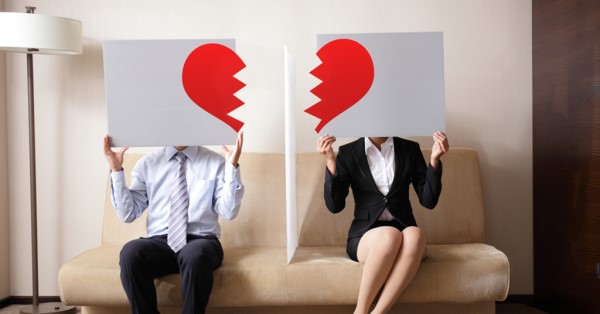Yes, chemistry is fun and exciting...
..and it’s usually what draws two people together. And in most cases, strong chemistry leads to sex.
So I’d say, read my answer to Kameron in the previous post.

Sincerely,
Teaching things you don't learn in school!

To break it off with this person, well, that depends on the person.
I’ve been through enough counseling with abusive boyfriends and husbands to know that that will never happen. And I’ve had enough friends go through the same thing. People don't magically change into a whole 'nother person simply because you want them to. This is not new.

Don’t share those plans with anyone!
When you do, that info will always get back to him or her, and he/she will sabotage all of it and could make your life a living hell.
...then it’s a little trickier because you can’t always just find another place to live.
You could tell a school counselor or teacher, but keep in mind that they might feel a need to tell your parents because your parents are the only people who can physically keep this person out of the house and away from you. It sucks if your parents like this person though…so talk this over with the counselor and hopefully, get some good advice as to how to handle this.
 You’ll be surprised to learn that almost all adults (usually women) have had to deal with abuse at one time or another, so please don’t ever be scared or embarrassed to tell them. They know.
You’ll be surprised to learn that almost all adults (usually women) have had to deal with abuse at one time or another, so please don’t ever be scared or embarrassed to tell them. They know.

...then you need to plan. And remember, don’t ever share your plan or intentions with your abuser: this person is NOT to be trusted. They will sabotage you.
Your plan should include:
Get creative…you will find a way to put aside something for your plan.

Again, the most important thing is to keep your plans a secret from all friends until everything is a done deal. You just don’t know who talks to this person. So, depending on how dangerous / violent this person is, I'd also suggest keeping your new location, workplace, and phone number under wraps for as long as possible.
If you're careful you'll come out of this just fine.
Sincerely,

How do you want to live as you get older?
When you start dating someone seriously, this is a topic you need to discuss with each other. It all falls under a discussion you should have about you both manage money (learn about that in the Relationship lesson).
A couple of close friends of mine (we'll call them Fred and Wilma) agreed that they would spend their money as fast as they made it. They didn’t save a dime and didn’t think anything would ever happen to the business they owned. Well, until they were in their early 70’s…and Fred's son (Sam, from a previous marriage) came along and talked Fred into handing the business over to him. They signed a contract and both agreed that Sam would keep Fred on as a consultant at a salary of $10,000 a month. Sweet.
Until Fred didn’t get his first month’s pay.
Turns out that Sam put some kind of loophole in the contract that allowed him to fire his father.
Now Fred & Wilma have no company, no income and no retirement savings at the age of 73.
They called Tom and I for help with their bills. All our extra income was tucked away into our retirement accounts and there was no way we were going to touch that to bail them out, knowing we’d never get it back. And they wouldn’t be able to help us if we ever needed it.
They lost everything, house, cars, motorhome, most of their household goods, everything had to go. And Fred ended up going back to school to get his real estate license and, luckily, they were able to rent a house from a friend of theirs.
Well, at least Fred and Wilma had agreed on how they would manage money.

How do you want to live as you get older?
If both of you are spenders like Fred and Wilma, well, at least you agree. But do you really want to risk being homeless when you get old?
Or if one of you is a spender and one is a saver, this could work. But you must agree on how much goes to savings and not fight about it. Remember, I mentioned that money is in the top three reasons for divorce? This is one of those possible hot buttons.
If both of you are savers, this may work well too. As long as you can agree on how much to save, and when spending a bit for fun stuff is ok, then you’ll be fine.
Regardless on what you decide, you should do some basic math and figure out how much you should save for retirement. That’s explained in my answer to Mauricio's question posted in the Employment lesson.
Sincerely,
I've been reading a lot of posts on social media lately where men and women alike are complaining about their other halves. Some of their arguments are pretty ugly regarding really bad behaviors. I'm not an expert on fixing people or relationships, but lately, I've been helping a lot of people learn how to make better choices before jumping right into the next one.
Let's begin with this first aha moment:
Anyone who's gone through a devastating break-up has got to know that being in love with someone doesn’t necessarily mean you can or should live with them.

So if we all know this, why do we keep falling in love with the wrong kind of person?
...we all get so caught up with the chemistry of the connection, that we completely blow off any use of our brains and logic. Sounds crazy, doesn’t it?
But if you’re really honest with yourself, I’ll bet you can remember at least one time in your life, (or a maybe gazillion times) that you've done this. Am I right?

You learn how to rely on your heart and your head. And the best way to do that is to make a checklist.
And you stick to it!
After all, if you don’t, you'll always get what you settle for. Which you already know, makes you miserable over and over again.
Yes, I know a “list” sounds so cold and impersonal. But wouldn’t it be nice if you could remember to avoid the annoying person that’s always loud and obnoxious for instance?
So! I’ve done all the work for you with this very cool worksheet that'll really get you thinking.
 It doesn't focus on rainbows and unicorns or even your favorite colors and hobbies. But it does contain eleven categories of characteristics and behaviors that you should include in your checklist when you're dreaming up the perfect mate; the one you want to spend the rest of your life with.
It doesn't focus on rainbows and unicorns or even your favorite colors and hobbies. But it does contain eleven categories of characteristics and behaviors that you should include in your checklist when you're dreaming up the perfect mate; the one you want to spend the rest of your life with.
And it contains a sample completed list that I created for myself. (Some things were private so I left them out, but you'll get the idea.)
This is the list that saved my life!
After going through three divorces with abusive men, I finally figured out I needed to do something different. Yes, some people would call me a slow learner, hahaha! But at least I finally got it right. And you can too! My fourth husband and I have been happily married since 2003 - Yay!
I sincerely wish you luck and happier days ahead!
Warmest regards,
In the small example shown here, American farmers are losing big time: The only people making money on milk produced in America is Canada.

Unless of course, the farmers can pass on some of the cost to their neighbors, also known as, citizens of the US. They do that by charging the $1 per gallon plus a $3 service fee/ markup, or whatever you want to call it. Regardless, now the average American is paying $4 for a gallon of milk.
This may seem like a small amount, but take a look at higher ticket items such as cars. Yes, we may sell them to Mexico, but we have to pay them a fee, aka, “tariff,” for letting us sell our products in their country. Oh, and never mind that our “American cars” are built in Mexico, we are still charged a tariff for selling them there! That fee is then rolled into the cost of cars for Americans, not to mention the debt our government is racking up for each tariff we pay on each car shipped back and sold there. Seriously???
The problem is that the fees we pay other countries are so high, that our farmers and manufacturers can’t charge us enough to cover them... thus the farmers and manufacturers, and us as Americans, are in debt to those other countries. When the politicians are talking about “trade deficit” being in the billions of dollars to other countries, that is what they are talking about.
Now, in my opinion, if one wants to be fair when it comes to trade with other countries these taxes should never exceed half the normal retail cost of a product. Even 50% at most would still be fair coming or going. According to Wikipedia, tariffs hit about 44% for imports (that’s us charging them) during the civil war, and between 1871 to 1913 they were lower but never dropped below 38 percent.
So if we had to pay, say ideally, a 20% tax on anything we ship into another country, (20 cents on a $1 gallon of milk) we would still make money without having to charge Americans so much for that product in order to make up the difference.
The same could be said for products we receive from other countries: Japan makes cars. America charges them, and they might pay us, say, a $6,000 tariff for every $30,000 car that lands in America. Theoretically, we, American resellers, are making money on each car. And over in Japan, they have to eat that cost by passing it on to their local residents. But the cars can still be reasonably priced.
Where this gets ugly, as shown in the example of the milk, is when the cost to send (export) our products to Canada, Mexico, the UK, or any other country, is almost three times the actual cost of the product here in America. Which is what’s happened with a lot of the import/export/trade agreements America has with other countries. Now we owe them money for the products we make here and ship to them; that’s called a huge debt known as a trade deficit. It’s that simple.
According to the NY Times (https://www.nytimes.com/2018/06/09/upshot/what-is-the-trade-deficit.html) we have a $69 billion United States trade deficit with Mexico and a $336 billion gap with China.
The only thing I will say to that is that I sure wouldn’t be running my business like that.
I hope this information goes towards helping you to understand this issue a little bit better.